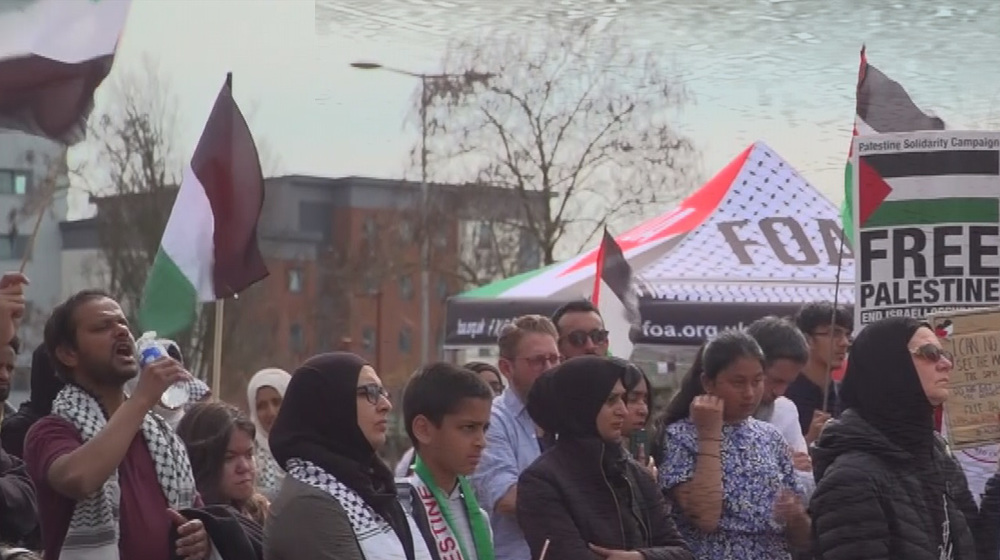Islamic Awakening Conf. slams Arab-Israeli normalization
Yusef Jalali
Press TV, Tehran
Tehran hosted the 13th session of the Supreme Council of the World Assembly of Islamic Awakening.
Scholars, thinkers and officials from 50 Muslim nations attended the session via video conference.
Organized by the Iran-based World Assembly of Islamic Awakening, the annual event seeks to address the latest crises in the Muslim world, while trying to find solutions for those issues.
This year's conference comes on the heels of a major development that rocked the region; that's the signing of a controversial normalization deal between Israel, the UAE and Bahrain. Something which has angered Muslims who call the move a backstabbing of Palestinians.
On the eve of the conference, the White House hosted Bahraini and Emirati foreign ministers and Israeli prime minister Benjamin Netanyahu.
With the US-brokered deals, the UAE and Bahrain have become the third and fourth Arab states after Egypt and Jordan to normalize their relations with Israel.
In his inaugural speech, secretary general of the conference, Ali Akbar Velayati called the Bahraini and Emirati move a historic folly emanating from their weakness.
He said the Muslim world can now rest assured that the friendship disguise is now stripped of their true enemies.
The Arab states' alignment with Israel do not represent a seismic shift in regional power equations, as they are merely publicizing their pre-existing covert ties.
The deal is widely viewed as Israel's last shot in its bid to legitimize its occupation of Palestine after several failed attempts.
Muslim scholars at the conference stressed that Palestine is the top priority and the innermost issue of the Islamic World, adding that the West has spared no effort in derailing that priority.
Representatives of different Muslim countries vowed to stay united and keep up their support for the Palestinian cause.

Paris hosts week-long pro-Palestinian rallies

Pro-Palestine demonstrators in UK slam BBC

Protesters form human chain in front of US Embassy in London
'Ugliest form of genocide': Palestine condemns Israel's attack on Gaza hospital
VIDEO | Press TV's news headlines
VIDEO | Israel renders the only operating hospital in Gaza out-of-service.
Leader: Ill-wishers furious with Iran’s increasing advances
Jeffrey Sachs: West Asia will see no peace until US is out
The implications of Trump’s trade war for Iran
Iran: Indirect talks with US strictly limited to nuclear, sanctions issues
Harvard faculty sue Trump admin over funding threat tied to pro-Palestine activism






 This makes it easy to access the Press TV website
This makes it easy to access the Press TV website